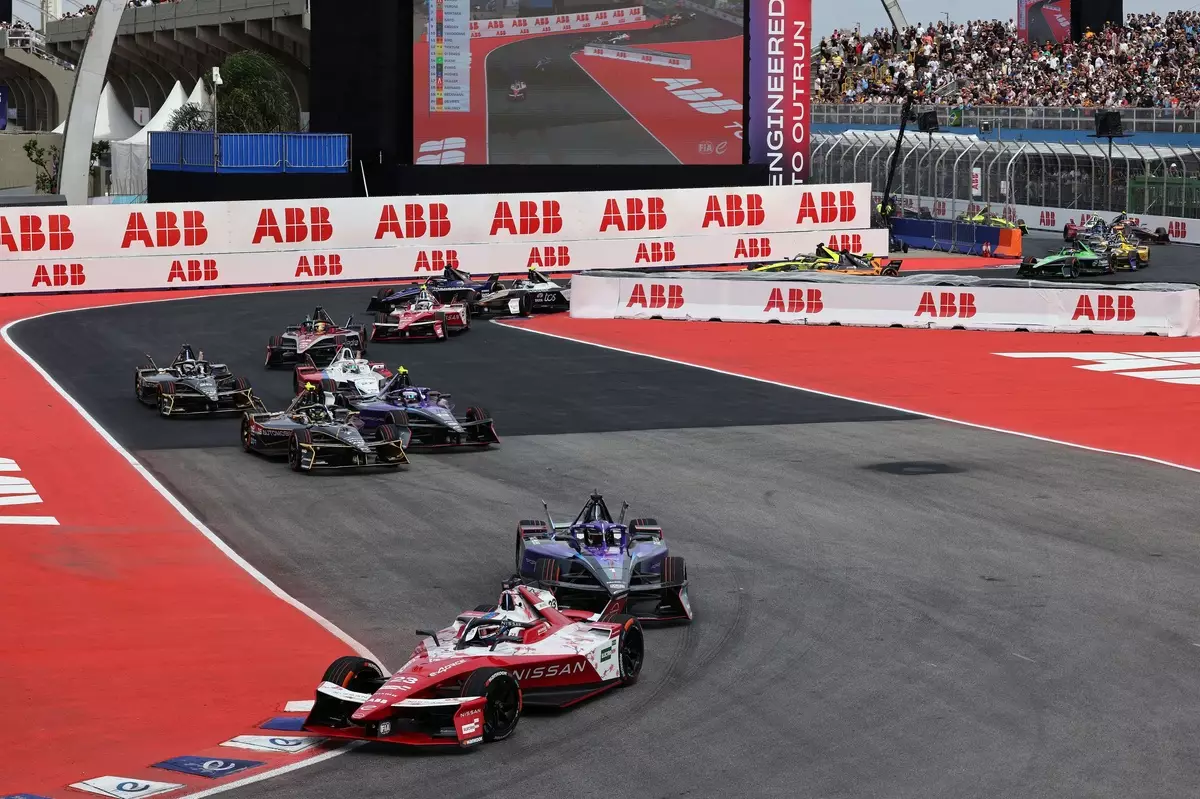The 2024-25 Formula E season kicked off with high expectations, particularly for Nissan’s Oliver Rowland, who had positioned himself as a strong contender for victory in the Sao Paulo E-Prix. However, despite showcasing his racing prowess by leading a substantial portion of the race, Rowland’s journey was marred by multiple incidents that ultimately left him without points. His experience during this race serves as a poignant reminder of how critical execution and strategy are in motorsport, where a few miscalculations can lead to devastating consequences.
Rowland’s race began with promise after securing a second-place qualifying position, only to be edged out for pole by reigning champion Pascal Wehrlein with a mere 0.099 seconds separating them. This competitive edge indicated that Rowland had the pace and skill necessary to mount a challenge for the win. From the moment the lights went out, he demonstrated his intent by overtaking Wehrlein shortly after the start, leading the opening laps of the race on the challenging city street circuit. However, the pressure at this level of competition is immense, and any misstep can quickly shift the momentum.
As the race progressed, Rowland faced unexpected challenges, particularly with the introduction of Attack Mode. While he initially led the charge, a strategic move by Nick Cassidy, aided by all-wheel drive technology, resulted in Rowland momentarily losing the lead. Yet, his cunning racing instincts returned to the forefront when he regained his position after activating his Attack Mode and capitalizing on a standing restart prompted by a red flag due to Jake Dennis’s stranded vehicle. This early battle for supremacy signifies the intricate dance Formula E drivers must engage in—balancing aggression with strategy while remaining acutely aware of rivals’ movements.
Despite navigating these challenges and building a lead of over three seconds at one point, Rowland soon found himself in a precarious situation as a result of a drive-through penalty, a setback that proved to be pivotal. His dismay was palpable as he reflected on how multiple mistakes collectively undermined his performance, stating, “it’s hard to accept sometimes.” This moment sheds light on the delicate balance of skill and luck that defines motorsport.
Rowland’s drive-through penalty stemmed from an ‘overpower’ issue, which affected not only him but also his teammate Norman Nato and several McLaren drivers. Such penalties can disrupt a driver’s rhythm and tactics, as was evident when Rowland had to navigate through the field after dropping back to eighth place. The irony lies in the fact that others, such as the McLaren entries, capitalized on their penalties by effectively managing their energy consumption during race interruptions. This illustrates a crucial aspect of Formula E racing—how driver decisions and team strategies must be fluid and adaptable, as unforeseen circumstances can derail even the most meticulously planned race strategy.
The paramount importance of energy management was a central theme to Rowland’s experience. His comments highlight how laps displayed and energy levels directly influence a driver’s ability to compete at the front. “If I had the right amount of laps from the start, I had as good an energy as anybody,” he pointed out, underscoring that a lack of accurate information can lead to misjudgments in energy strategy. The intersection of technology and racing becomes ever more critical as teams must adapt to real-time data to avoid costly mistakes.
In the grand scheme of racing, Rowland’s Sao Paulo E-Prix serves as a testament to the unpredictable nature of motorsport. He exhibited talent and potential throughout the race but was ultimately thwarted by a series of misjudgments and external factors beyond his control. As the season progresses, the lessons learned on this track will undoubtedly shape his future strategies. For Rowland, the key takeaway might lie in refining how he approaches both the technical and psychological aspects of racing, ensuring that he transforms the heartache of missed opportunities into a foundation for success in the subsequent races.


Leave a Reply